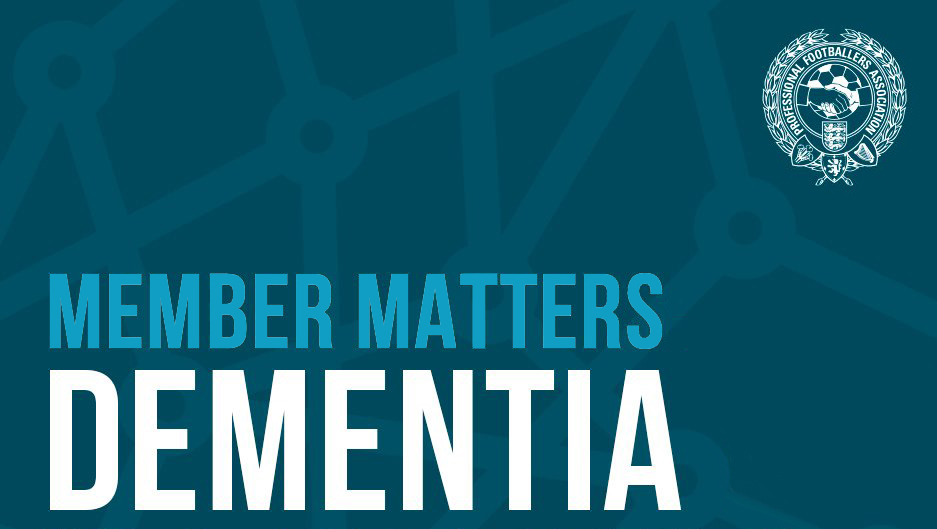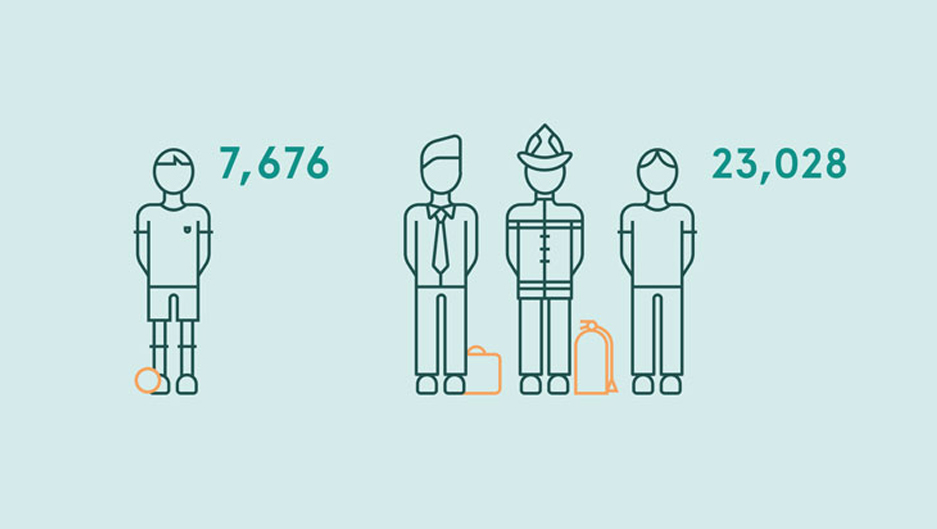A thread on #dementia in football 
A brief summary of the work that the PFA has undertaken on dementia research and the support offered to players and their families.

A brief summary of the work that the PFA has undertaken on dementia research and the support offered to players and their families.
The findings from the FIELD Study, which was jointly funded by the PFA Charity and @FA, provided the first major insights into lifelong health outcomes in former professional footballers, specifically examining the incidences of neurodegenerative disease.
At the time of publication, this was the most extensive study of its kind, not just in professional football, but within any sport globally.
The results showed ex-footballers participating in the study had x3.5 the death rate due to neurodegenerative conditions than the control group. Over 18 years - 1,180 of the 7,676 footballers included in the study died. Of which, 222 died from a neurodegenerative disease.
Following the FIELD study, the PFA Charity has committed further funding to extend the research with Dr Willie Stewart and Glasgow University.
In 2005, the PFA first applied to the Industrial Injury Advisory Council (IIAC) to request that neurodegenerative diseases be prescribed as an Industrial Disease in ex-professional footballers. Our application was rejected at the time, due to lack of evidence.
It is hoped that the results from The PFA Charity funded FIELD Study research may provide the required level of evidence. As such, the PFA has supported Nick Gates’ application to the IIAC. Nick’s father Bill is a former player living with dementia.
In addition to the ongoing work with Glasgow University, the PFA is funding two other projects. This includes the International Concussion and Head Injury Research Foundation to examine head injuries in sport.
 Find out more (filmed in 2019):
Find out more (filmed in 2019):
 Find out more (filmed in 2019):
Find out more (filmed in 2019):
The PFA Charity is also co-funding the FOCUS study at Nottingham University, which is a study of brain function and joint health in former professional footballers.
We are also working with the Drake Foundation on the HEADING Study to recruit former players to examine the link between heading the ball and long-term cognitive function.
In addition to research, the PFA are active members of the FA Expert Panel on Concussion and Head Injuries. The panel was established in 2015.
The expert panel has been instrumental in developing new guidelines which have been adopted as regulations with regard to the assessment, treatment and enhanced return to play protocol.
These guidelines and regulations ensure that medical staff making the assessment of a player who sustains a head injury have full responsibility for the decision as to whether he or she can continue.
The PFA was involved in the creation of the FA Heading Guidance issued earlier this year, aimed at reducing and removing repetitive and unnecessary heading from youth football.
The players' union has lobbied for the introduction of concussion substitutes in the Premier League, English Football League and Women's Super League.
IFAB is set to discuss the potential law change later this month.
IFAB is set to discuss the potential law change later this month.
The PFA Charity is committed to supporting former players, and their families, who are living with dementia or any other neurodegenerative condition.
The support includes respite care for carers, financial assistance towards provisions such as home improvements, independent benefits advice, counselling provisions for family members and help with care costs. The support we provide to individuals is always confidential.
Any former player who has received a diagnosis of dementia, or any neurodegenerative condition, support is available from the PFA Charity.
Find out more here: http://thepfa.com/dementia-brochure.
Find out more here: http://thepfa.com/dementia-brochure.

 Read on Twitter
Read on Twitter




